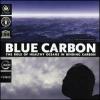Coral reef resilience assessment of the Bonaire National Marine Park, Netherlands Antilles : surveys from 31 May to 7 June, 2009

Although Bonaires coral reefs remain among the healthiest and most resilient in the Caribbean, this IUCN report based on the IUCN Resilience Assessment of Coral Reefs highlights some of the threats that exist to Bonaires coral reefs, and which could have serious implications for resilience to future climate change and other threats. The report identified recommendations for addressing the current threats, as well as high and low resilience sites.







